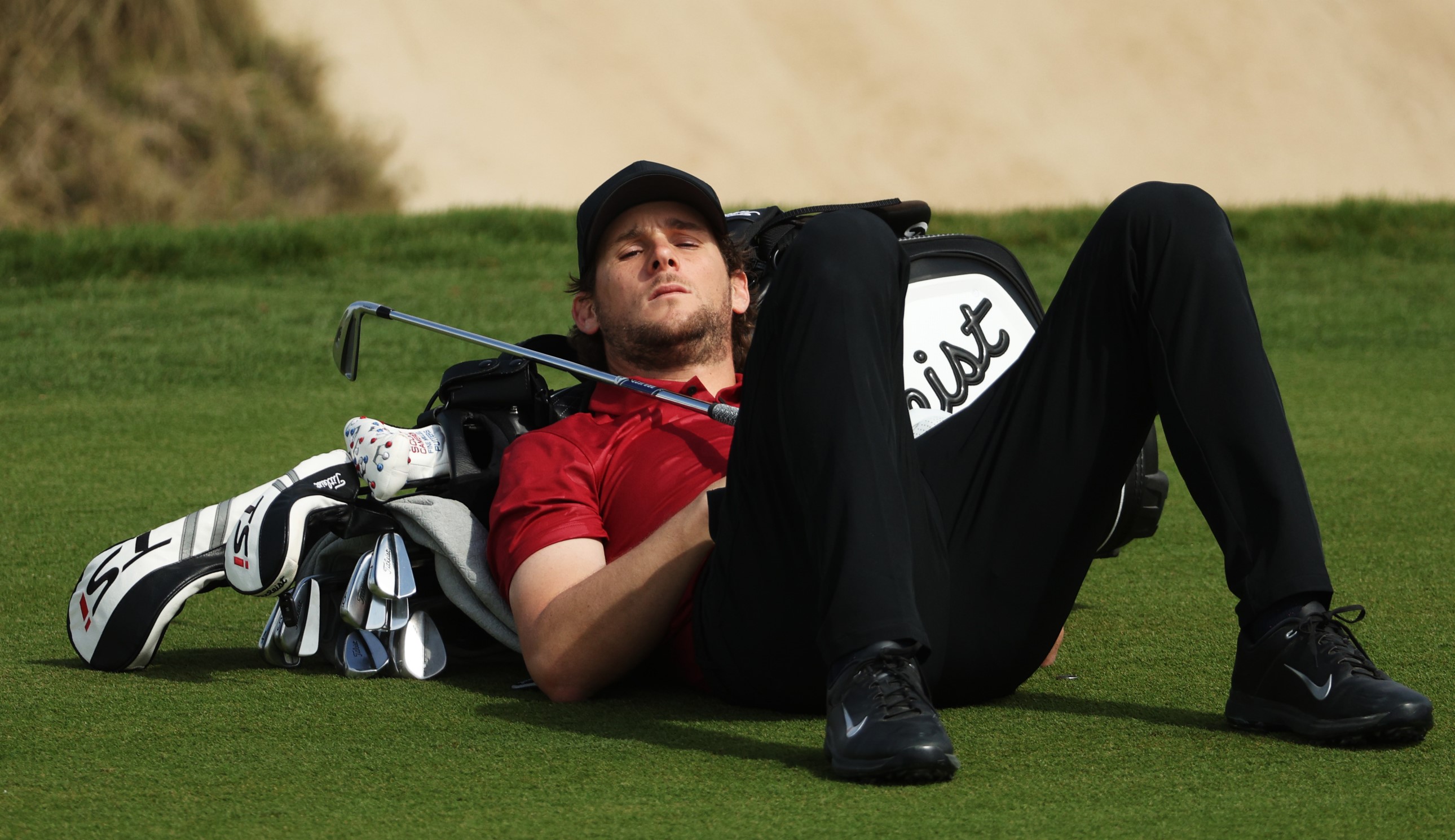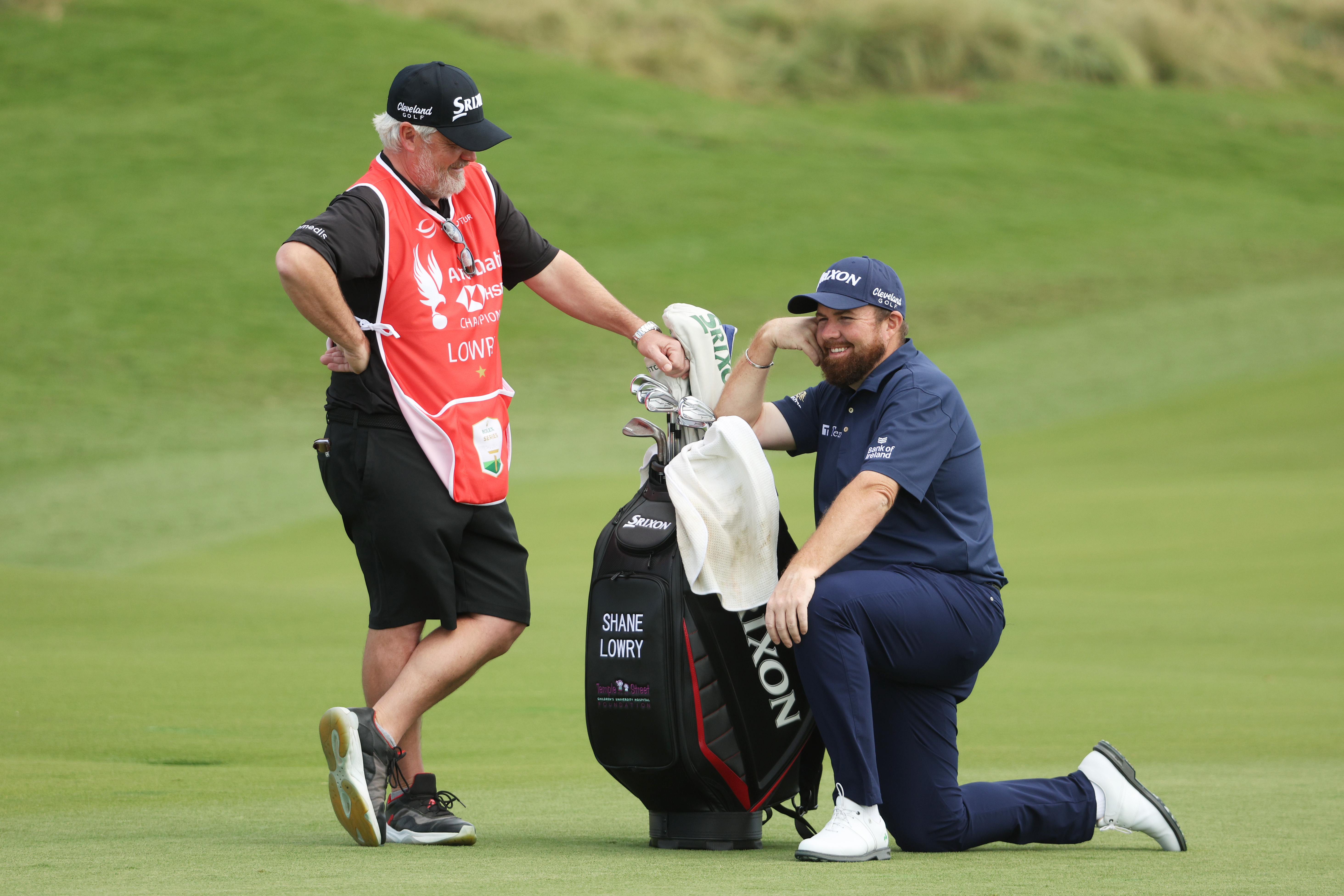Slow Play Causes Huge Hold Ups In Abu Dhabi
The final group took over five hours to complete their rounds, with long delays occurring all around the course


Subscribe to the Golf Monthly newsletter to stay up to date with all the latest tour news, equipment news, reviews, head-to-heads and buyer’s guides from our team of experienced experts.
You are now subscribed
Your newsletter sign-up was successful
Want to add more newsletters?

Delivered daily
Daily Newsletter
Sign up for all the latest tour news, gear reviews, head-to-heads and buyer’s guides plus features, tips from our top 50 coaches and rules advice from our expert team.

Once a week
Kick Point
Sign up to our free Kick Point newsletter, filled with the latest gear reviews and expert advice as well as the best deals we spot each week.

Once a week
Women's Golf Edit
Sign up to our free newsletter, filled with news, features, tips and best buys surrounding the world of women’s golf. If you’re a female golfer, you won’t want to miss out!
Despite the Abu Dhabi HSBC Championship providing some superb action over the first three days, it was slow play that unfortunately reared its ugly head as players were made to wait regularly throughout the third round on Saturday.
Although it was uncertain which groups were causing the slow play, the trio of Takumi Kanaya, Julien Brun and Ian Poulter were recorded waiting on one of Yas Links' tee boxes, with the group of Alexander Bjork, Shane Lowry and Thomas Pieters being made to wait on the fairway.
@AndyTFE @BrendanPorath @NoLayingUp great course, awful pace of play. Wait until the end pic.twitter.com/kTDZPUw8KaJanuary 22, 2022
With the last group teeing off at 11.50am local time, it would be more than five hours before they holed out on the 18th, finishing at around 5pm.
It's fair to say that conditions at Yas Links this week haven't been the most favourable for the players. On Friday, winds crept up to nearly 40mph, with some competitors having to come back on Saturday to finish their second rounds. On Saturday however, the weather was a lot tamer than that experienced the previous day.

Shane Lowry waits on the second hole.
For those defending the slow play, it is maybe worth noting that new statistics from Arccos Golf confirm that slow play does actually make you play worse, with comprehensive data for handicaps ranging from scratch to 20 showing that slow play has a negative impact on scores for golfers of all abilities, with rounds that take four and a half to five hours costing golfers the most strokes.
The statistics show that, for every half hour on the course, golfers are impacted by around 0.4 to 0.7 strokes, with four-and-a-half to five-hour rounds costing golfers between 1.3 to 1.7 strokes compared to a round that takes three to three and a half hours.
The data also shows that higher handicaps are impacted more by slow play, with 15 - 19.9 handicappers taking an extra 1.7 strokes when out on the course for 4.5 - 5 hours. This is 0.4 strokes more than handicappers below five, which are impacted by 1.3 strokes when playing a slow round. Read the full article here.
Subscribe to the Golf Monthly newsletter to stay up to date with all the latest tour news, equipment news, reviews, head-to-heads and buyer’s guides from our team of experienced experts.

Matt joined Golf Monthly in February 2021 covering weekend news, before also transitioning to equipment and testing. After freelancing for Golf Monthly and The PGA for 18 months, he was offered a full-time position at the company in October 2022 and continues to cover news and social media.
Taking up the game when he was just seven years of age, Matt made it into his county squad just a year later and continues to play the game at a high standard, with a handicap of around 2-4. To date, his best round is a six-under-par 66 having been seven-under through nine.
Matt’s current What’s In The Bag?
Driver: Honma TW747, 8.75°
Fairway Wood: Ping G430 LST 15°, 19°
Irons: TaylorMade P7CB
Wedges: Cleveland 588 RTX 2.0 Tour Satin, 50°, 56°, 60°
Putter: Cleveland TFI 2135 Satin Cero
Ball: Titleist Pro V1